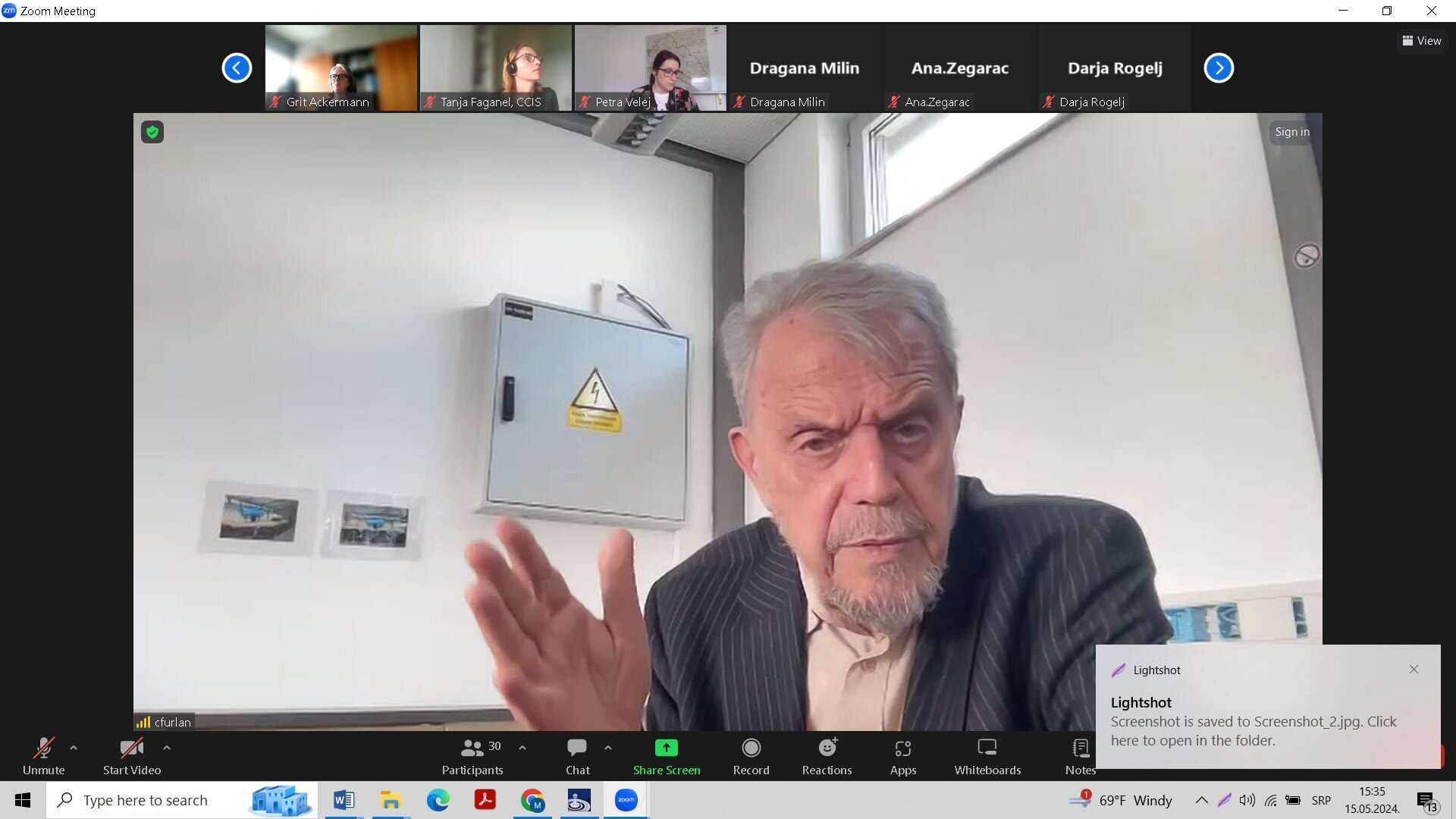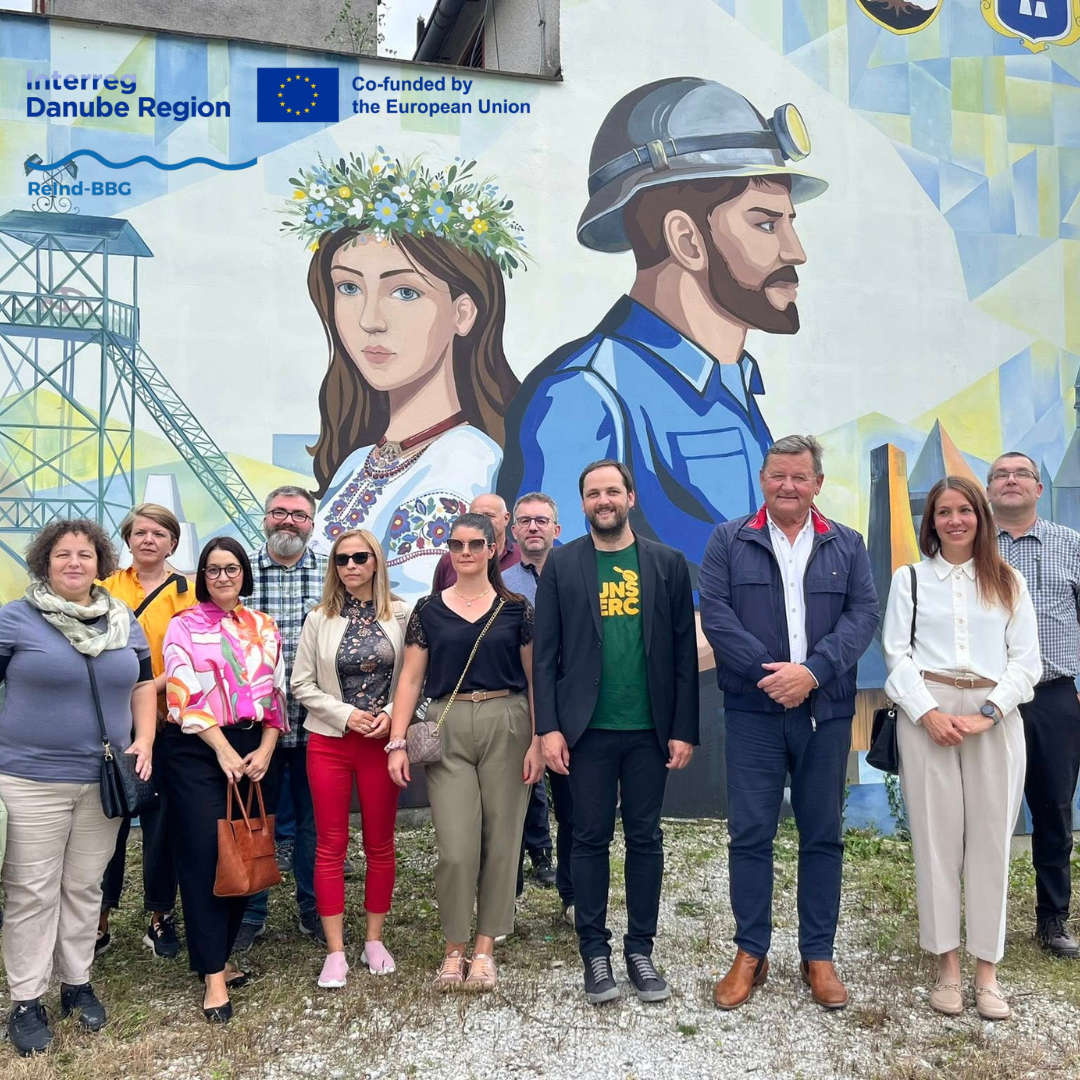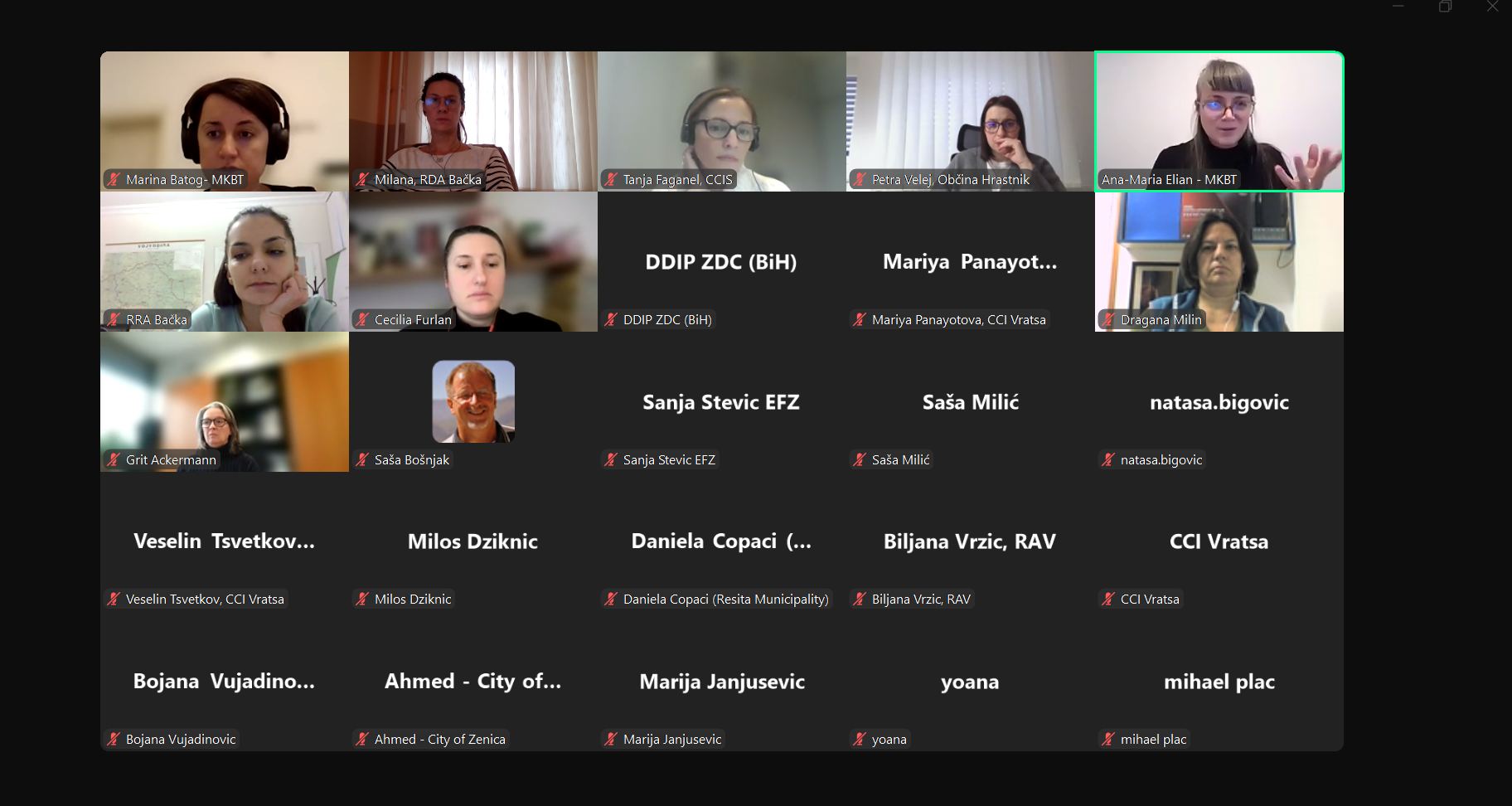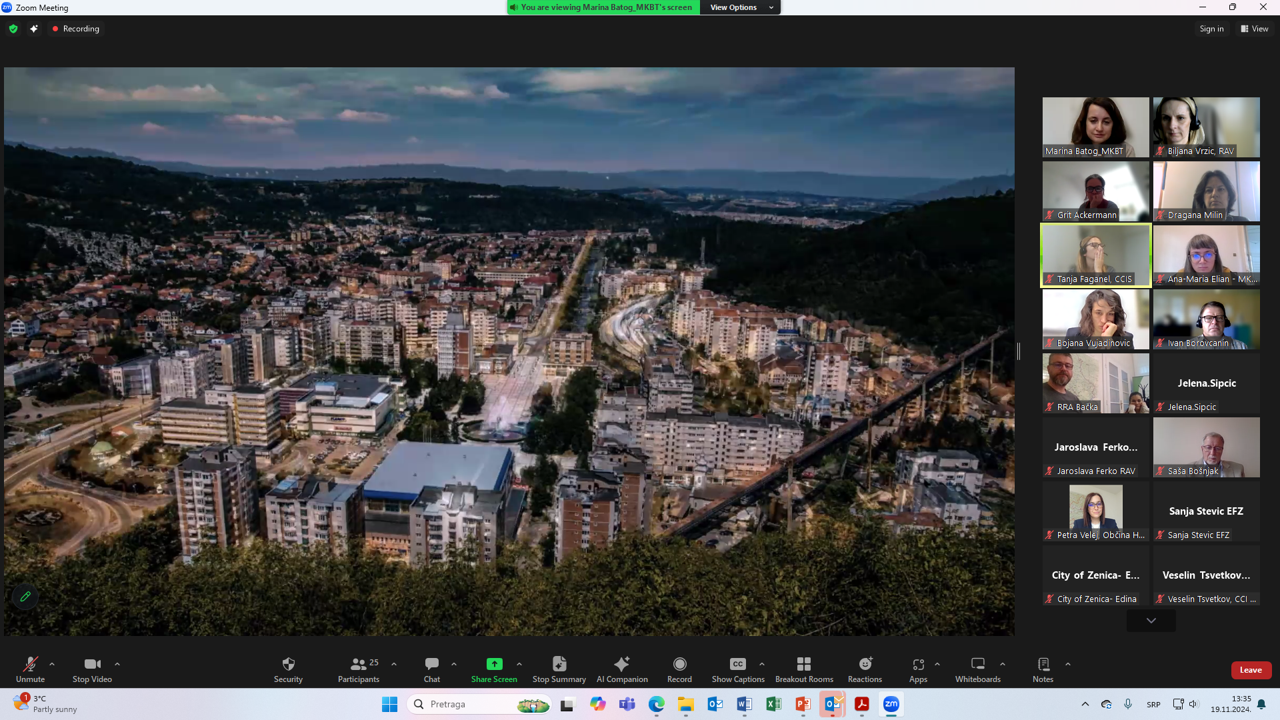
Territorial Agenda 2030 and Beyond: European Spatial Planning Strategies & Best Practice Projects
On May 15, 2024, as part of the ReInd-BBG project - Capacity Building activities, project partners, associated strategic partners, as well as the professional community, had the opportunity to attend an interactive lecture on the topic of the Territorial Agenda 2030 by Professor Andreas Faludi - Honorary Doctor in Planning. From the perspective of the REInd-BBG project, this topic is highly significant because the project’s transnational roadmap for BBG Re-industrialisation is thematically based on objectives formulated in the Territorial Agenda 2030 (“reduce land consumption, “build strong and sustainable local economies”).
The event began with Emilie Stecher introducing Professor Andreas Faludi, a distinguished figure in spatial planning and European planning policies. Faludi provided insights on the European territorial agenda and planning strategies, with a focus on his skepticism towards the current territorialism concept. The discussion then shifted to a detailed examination of the differences between Dutch and English planning systems, highlighting the challenges faced by the Dutch system due to outdated local plans. The conversation then explored the vision and implementation of the single market, shedding light on the regional development funding dynamics within France and the concerns about marginalization.
The meeting then delved into the intricate evolution of European spatial planning, shedding light on the challenges and transformations that shaped its development. The discussion encompassed the impact of significant milestones such as the European Constitution and the Treaty of Lisbon, as well as the resistance and Euroscepticism among member states. The current state of European spatial planning was also discussed, emphasizing the lack of a realistic European spatial plan and the shift towards collaboration between experts across borders for research and development.
The meeting also explored the historical invention of nations, tracing back to the 18th and 19th centuries and the impact of events like the French Revolution and German Romanticism on the concept of national identity. The speaker emphasized the artificial nature of states and boundaries, highlighting the role of nation-building in creating traditions, folklore, and infrastructure. The discussion then shifted to the EU's structure, proposing a looser federation similar to the Middle Ages as a potential model. The potential contributions of Interreg projects to improving the European planning system and cross-border cooperation were also explored.
The meeting concluded with a discussion on the concept of territorial cohesion and its relevance for the European Commission, emphasizing the absence of a definitive definition to encompass the diverse perspectives of member states. The conversation then transitioned to exploring the potential impact of the rights of nature movement on shaping the territorial agenda, with a specific example of its influence on urban settlements and pollution in the river Drina region in Serbia and Bosnia. The limitations and challenges of the territorial agenda in practical implementation were also highlighted, raising questions about its applicability despite the presence of good intentions.
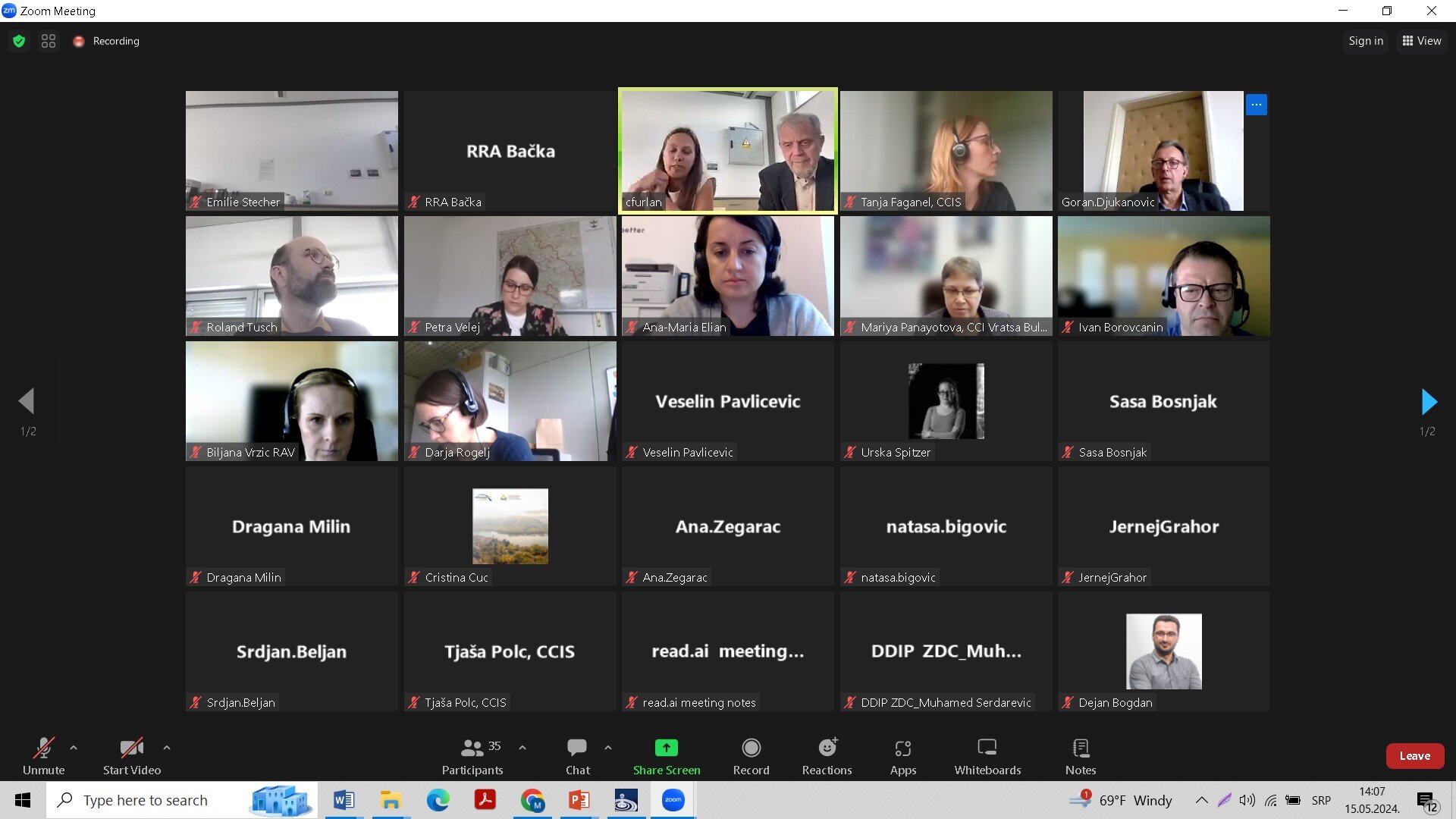
News & Events
Read the most recent updates and explore the upcoming events.

